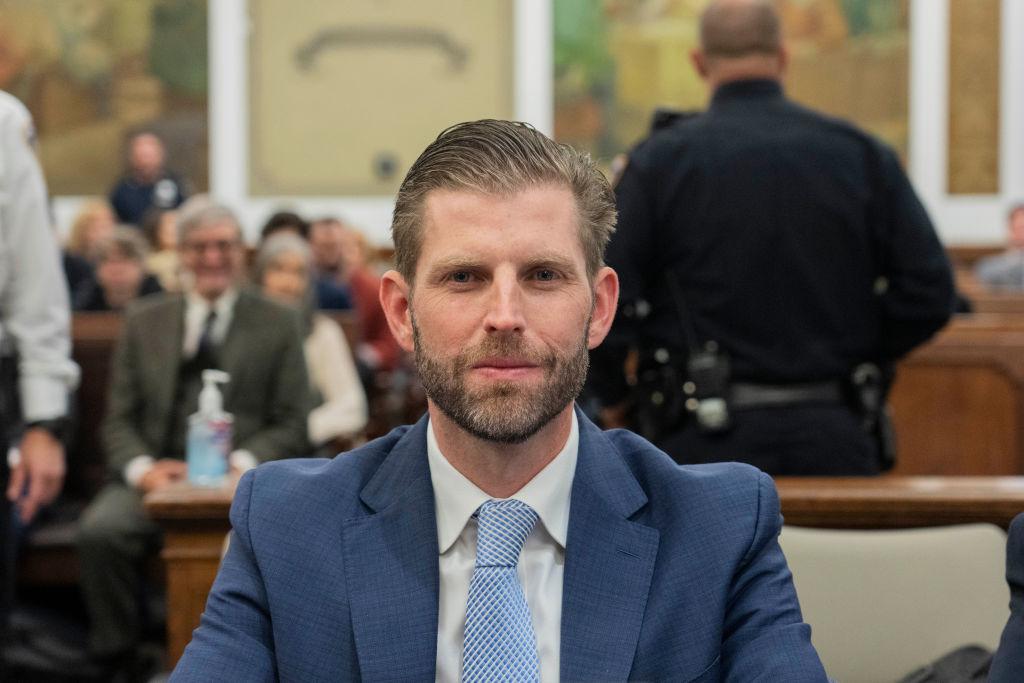Eric Trump has voiced his concerns about the $454 million bond that his father, former President Donald Trump, is required to pay in his New York fraud case, labeling it as a “political vendetta.”
New York Attorney General Letitia James, who brought the case against President Trump, has given him until March 25 to pay the bond, which he must submit before he can appeal the judgment against him.





